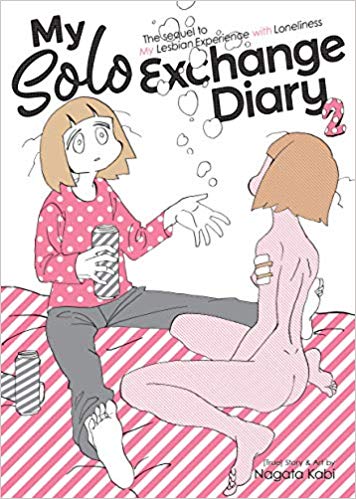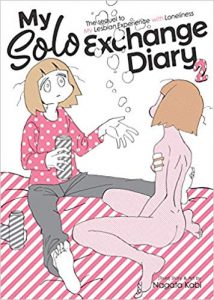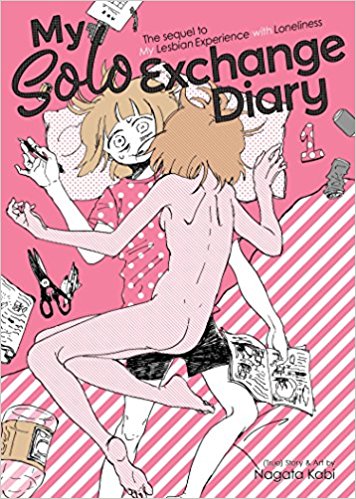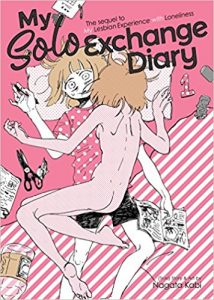By Nagata Kabi. Released in Japan as “Hitori Koukan Nikki” by Shogakukan, serialized in Big Comic Special. Released in North America by Seven Seas. Translated by Jocelyne Allen. Adapted by Lianne Sentar.
By the end of this volume, the author has decided that she’s ending this diary, at least for public consumption. While this volume was also very good, I do think that may be for the best, as we are once again reminded that the life of a real person can cause more emotional pain that the life of, say, a 16-year-old girl in a girls’ private school. Apparently the last volume (the first Solo Exchange Diary) was not as popular with folks in Japan, particularly the last chapter, and that hit Kabi-san pretty hard. This final volume is much like the other two – some really good realizations and a few tentative steps forward, but also quite a few steps backward. The cover shows us two sides of Kabi-san talking with each other, the first being the one that’s resorted to alcohol, the other being the one who cuts herself. This remains a gripping but uneasy read.
At the start of the book she finds herself returning to live with her parents for a bit, and coming to terms with the fact that her mother is not her, and doesn’t deal with things the same way that she does. Her grandparents also get to see that she’s published two books, and carefully praise her for the publication while avoiding the content, which is very true to life. There are shots of the day-to-day life that the two had which I quite enjoyed. Unfortunately, in this volume Kabi-san also starts drinking beer. A lot. To the point where she’s wetting her bed by accident in the mornings. So much of the second half of the book takes place in the hospital, where she checks herself in so that she can deal with this. There are communication problems with the doctors and nurses, and at one point she’s cutting herself again. I find the fact that she’s putting this all out there on the page amazing.
At the end of the book, she’s out of the hospital, creating original manga, and realizing that the business of being “Nagata Kabi” is too much, which is likely the main reason why the Diary is ending. The best part, though, is that we get to see the original manga she created (it ran in Hibana magazine), and it’s really good. The story of two young people who are “rebelling against society” in a very literal way, it’s cute, clever and emotionally bruising all at the same time. The story is complete as is, but it does make me want to read more of Kabi’s original creations. As for her own life, I thank and applaud her for showing it to us, for good and ill, and I hope that the diary can continue in private even if it doesn’t in public. I felt it was an excellent read, and would also recommend it to anyone else who is dealing witd depression or other inner turmoil.



